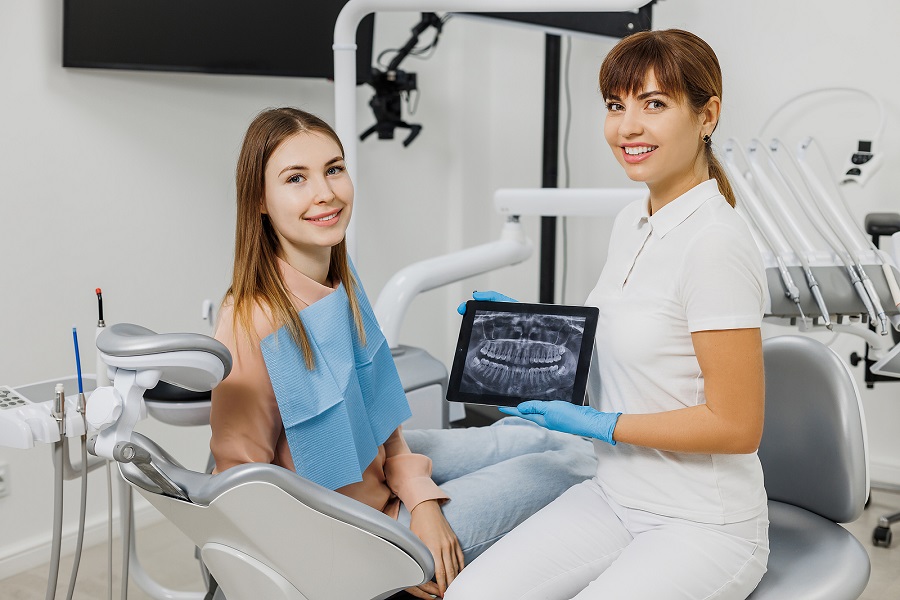What to Expect After a Dental Implant Procedure: A Comprehensive Aftercare Guide
Posted by GULF COAST DENTAL Aug 28, 2024

Are you considering dental implants in Pensacola, FL? You're not alone. Many people are opting for this innovative solution to restore their smiles and improve oral health. But what happens after the procedure? Understanding the recovery process is crucial for achieving the best results and ensuring your new teeth feel comfortable and look great.
In this comprehensive guide, we will walk you through everything you need to know about post-implant care. From understanding what a dental implant entails to tips for smooth recovery, diet recommendations, potential complications, and long-term maintenance—this article has got you covered! Let's dive into what awaits you after your dental implant journey begins.
Understanding Dental Implants
Dental implants are a modern solution to tooth loss, designed to seamlessly blend with your natural smile. They consist of three main components: the implant itself, an abutment, and a crown. The implant is typically made of titanium and serves as a sturdy root that fuses with your jawbone.
This fusion process, known as osseointegration, provides stability for the replacement tooth. Unlike dentures or bridges, dental implants offer durability and can last many years with proper care.
Patients often appreciate how implants restore functionality for eating and speaking while enhancing overall aesthetics. Moreover, they help prevent bone loss by stimulating the jawbone just like natural teeth do.
Choosing dental implants in Pensacola, FL, means investing in both comfort and confidence in your smile's appearance. Understanding this procedure helps you prepare mentally for what lies ahead on your journey toward oral restoration.
The Dental Implant Procedure: Step-by-Step Process
The dental implant procedure begins with a thorough consultation. Your dentist will evaluate your oral health and discuss your goals. Imaging tests may be conducted to assess bone density.
Next, the surgical phase takes place. Under local anesthesia, the dentist places a titanium post into the jawbone. This serves as an artificial tooth root.
Afterward, a healing period is essential. It can take several months for the implant to integrate with the bone through osseointegration.
Once healed, an abutment is attached to the post. This small connector secures your custom-made crown in place.
Impressions are taken to create that perfect replacement tooth tailored just for you. With careful planning and execution, dental implants restore both functionality and aesthetics seamlessly. Call us to learn more.
Aftercare: Tips for a Smooth Recovery
After your dental implant procedure, proper aftercare is crucial for a smooth recovery.
- Begin by following your dentist's instructions closely. They know best what's right for you.
- Rest is essential in the first few days. Avoid strenuous activities to help minimize swelling and discomfort. Keep your head elevated while resting to reduce inflammation.
- Ice packs can be a game changer. Apply them on the outside of your cheek for 15-20 minutes at a time during the first day or two.
- Maintain oral hygiene but do so gently around the implant site. Rinsing with saltwater can soothe irritation and promote healing; just remember not to swish too vigorously.
- Stay hydrated! Drinking plenty of water supports overall wellness and aids in recovery without irritating sensitive areas in your mouth.
Diet and Nutrition Recommendations
After your dental implant procedure, it's essential to pay attention to your diet. The right nutrition can significantly aid in the healing process.
- Start with soft foods. Yogurt, applesauce, and mashed potatoes are excellent choices. They're gentle on your gums while providing necessary nutrients.
- Stay hydrated as well. Drinking plenty of water helps keep your mouth moist and supports overall recovery. Avoid sugary drinks that may cause discomfort or complications.
- Incorporate protein-rich foods when you're ready for more variety. Eggs, fish, and smoothies can help repair tissues and promote healing without putting too much strain on your implants.
- Spicy or acidic foods should be avoided initially; they could irritate sensitive areas in your mouth. Focus on balanced meals filled with vitamins and minerals to support not just oral health but also general well-being during this critical time of recovery.
Potential Complications and How to Handle Them
While dental implants are generally safe, some complications can arise. Swelling and discomfort are common after the procedure. These symptoms usually subside within a few days.
Infection is another concern. If you notice increased pain or unusual discharge from the implant site, contact your dentist in Pensacola, FL immediately for evaluation and treatment.
Sometimes, implants might fail to integrate properly with the jawbone. This could be due to several factors, such as smoking or insufficient bone density. If you experience mobility of the implant, seek professional help right away.
Nerve damage can occur but is rare. Symptoms include tingling, numbness, or persistent pain in nearby areas. Your dentist will guide you through any necessary interventions if this happens.
Monitoring your recovery closely ensures prompt action at any sign of trouble, keeping your smile on track during healing.
Long-Term Care and Maintenance of Dental Implants
Maintaining dental implants requires a commitment to oral hygiene. Regular brushing and flossing are essential. Aim for at least twice daily brushing with fluoride toothpaste to keep your gums healthy.
Routine dental check-ups every six months will help catch any potential issues early. Your dentist can assess the implant's condition and ensure everything is functioning as it should.
Avoid habits that may jeopardize your implants, such as grinding your teeth or using them to open packages. If bruxism is an issue, talk to your dentist about a night guard.
Stay mindful of your diet too. Limiting sugary and acidic foods can protect both natural teeth and implants from decay or deterioration.
With proper care, dental implants in Pensacola, FL, can last for many years, making them a worthwhile investment in your smile's longevity.
Conclusion
Dental implants are a significant investment in your oral health. Understanding the process and what to expect afterward can make all the difference in your recovery journey. Remember that proper aftercare is essential for successful healing, allowing you to enjoy the benefits of dental implants in Pensacola, FL.
By following recommended tips for aftercare, maintaining a balanced diet, and being mindful of potential complications, you'll set yourself up for long-term success with your new smile. Regular check-ups and good oral hygiene will keep your implants looking great and functioning well for years to come.
With attentive care and commitment, you're on track to enjoy the freedom and confidence that comes with restored dental function. Embrace this exciting chapter in your life as you take steps toward optimal oral health!
To discover more about the advantages of dental implants, contact Gulf Coast Dental at 1751 W 9 Mile Rd. Pensacola, FL 32534, or call (850) 495-6899.

Working Hours
- MON - THU8:00 am - 4:00 pm
- FRI - SUNClosed






